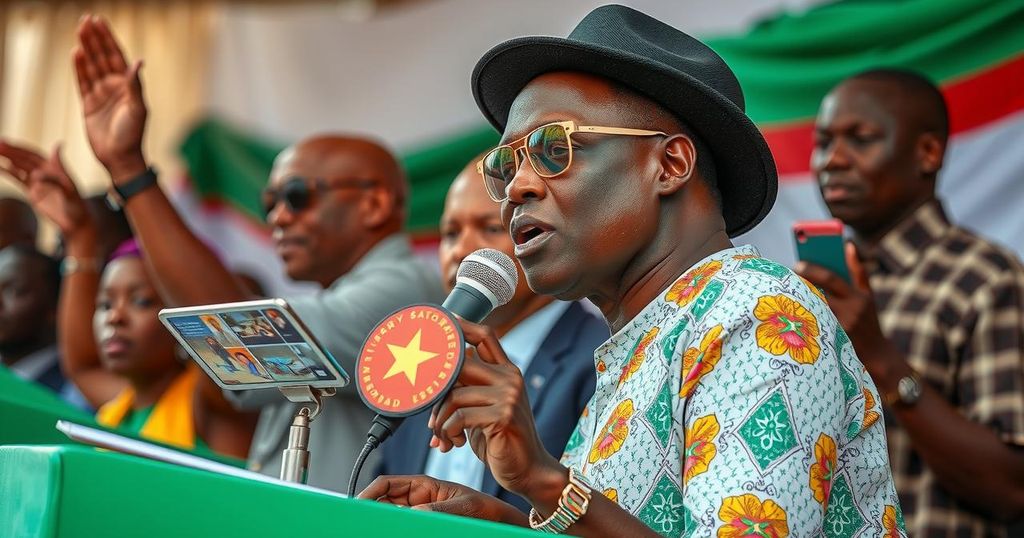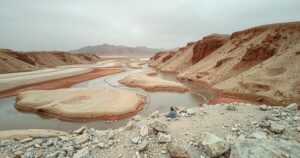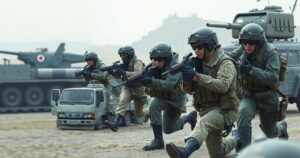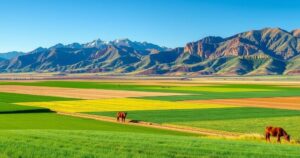Ghana Votes in Competitive Presidential Election Amid Economic Challenges

Ghanaians voted in presidential elections on Saturday, featuring Vice President Mahamudu Bawumia and former President John Mahama in a tight race. The election is largely focused on economic recovery following a severe financial crisis and debt default. President Nana Akufo-Addo is stepping down, with Bawumia and Mahama proposing differing strategies to address the nation’s economic challenges amidst a history of political stability in Ghana.
On Saturday, Ghanaians participated in crucial presidential elections, witnessing a competitive race between incumbent Vice President Mahamudu Bawumia of the New Patriotic Party (NPP) and former President John Mahama of the National Democratic Congress (NDC). This election is particularly significant as it follows the worst financial crisis in Ghana’s history, resulting in a severe debt default that has underscored economic recovery as the primary concern for voters. With President Nana Akufo-Addo stepping down after fulfilling his constitutional two-term limit, voters are eager for changes in the nation’s governance and economic management.
The economic turmoil, characterized by high inflation, unemployment, and the depreciation of the local currency, has prompted widespread frustration among Ghanaians. Many citizens, like retired policeman James Nsiah, express the need for a shift in governance to alleviate the harsh economic realities. With voting closing at 1700 GMT, early election results are anticipated on Sunday, with full presidential results expected by Tuesday.
The NPP hopes that Bawumia can secure an unprecedented third consecutive term with the slogan “Break the 8.” However, his campaign has faced challenges due to existing economic criticisms linked to the outgoing administration. Bawumia, a UK-educated economist, emphasized his commitment to economic recovery, citing ongoing digitalization efforts and improvements in education and healthcare.
On the opposing side, John Mahama, aiming for a political comeback after previously serving as president from 2012 to 2017, advocates for a ’24-hour economy’ to generate employment and production. Despite superior awareness of Mahama’s past governance, voters show a strong desire for change, contributing to a closely fought election.
While many view the northern regions of Ghana as an NDC stronghold, emerging dynamics could lead to shifts in voter alignment, transforming these territories into pivotal battlegrounds for the elections. The issue of illegal gold mining has also surfaced in discussions, particularly regarding environmental degradation and impacts on cocoa farming, further emphasizing the need for political accountability and change.
Ghana’s political landscape is characterized by a history of stability, alternating power between the New Patriotic Party and the National Democratic Congress since 1992. The upcoming elections come in the wake of severe economic challenges the country has faced, including a debt default and high inflation, which have created pressing concerns for average citizens. Additionally, the government’s management of essential sectors, such as cocoa production and gold mining, remains at the forefront of voters’ minds as they assess the candidates’ ability to restore economic health and ensure sustainable development.
In summary, the Ghanaian elections are a critical reflection of public sentiment concerning the economy, with Mahamudu Bawumia and John Mahama presenting distinct visions for the nation’s future amidst adversity. The upcoming results will not only determine the next president but also provide insights into the electorate’s priorities and the potential for policy changes aimed at revitalizing the economy and ensuring stability in governance. As the nation grapples with its economic challenges, the outcome of this election signifies a crucial juncture for Ghanaian democracy.
Original Source: www.france24.com







